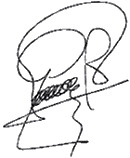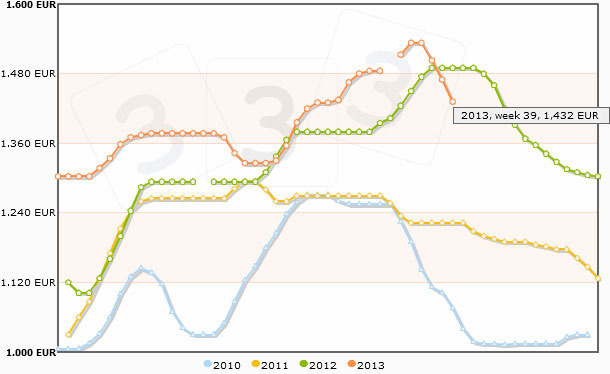In September Spanish price has started a downward trend spiral that seems to feed itself back. Pigs are in excess, they weigh more and there is a rush for taking them to the abattoir. What happens in Spain must be put in the context of the EU, where the downward trend is something general. We have lost €0.10 per kg liveweight (this is no small thing), and everything tells us that we have not yet reached the end of this process.
Spain is a full member of the European Union, which is a customs union with common rules for its members. Internally, it is a free trade area, and in the current context, the pig meat trade is very efficient and quick. We could say that the different national markets behave, necessarily, in a similar way.

These statements having been made, we want to point out the recent behaviour of the swine prices in several European countries:
- All the markets (with the only exception of Great Britain) have been falling quickly since a few weeks ago.
- Spain is the only significant European market in which, in 2013, the previous year's maximum price has been exceeded (together with Italy, which is progressively less significant).
- All what Germany and France have done is to reach last year's maximum price.
- The Netherlands and Belgium have almost reached the previous year's record price.
- Denmark and Poland have remained far away from the previous year's maximum price.
We are coming from a very high place, and due to this the correction will be more severe.
It is difficult to understand what is happening, not only in Spain, but in all Europe. The livestock supply is very high, and the maximum activity of the abattoirs cannot even absorb it. The scenario is radically different to the one seen only six weeks ago, and the only significant differential factor that we know of is the mildness of the weather.
The drops in terms of the price of the livestock have been transferred to the meat very quickly. The market shows fluidity and, although the meat supply is very high, there are no unsold batches, generally speaking (although it may even be at the cost of offering product lowering the prices greatly).
There is no other thing to do than to wait for the situation to clear up. Soon the market must find its ground resistance level and from there on we will be able to go on with hope. We have the consolation of the abundance of food at a good price.
The great Winston Churchill enunciated, due to the situation of England during the Second World War, an explicit sentence (without a verb tense) that is relevant in this case. It says: “When you are the anvil, bear - when you are the hammer, strike”.
Guillem Burset




